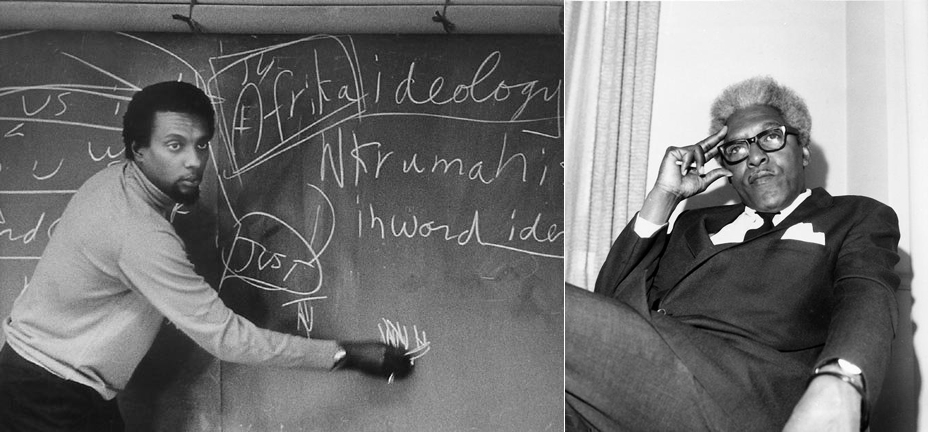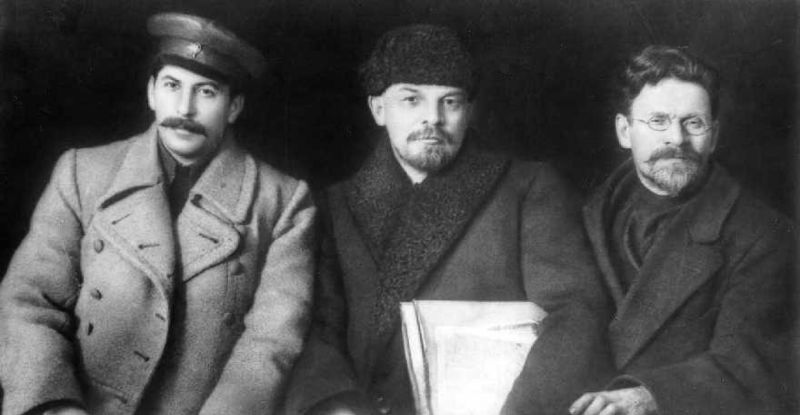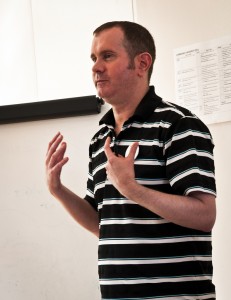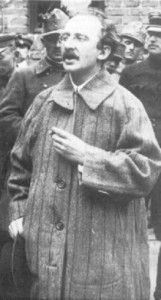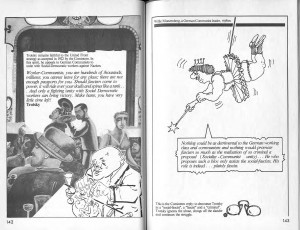Adorno’s “Leninism”
Chris Cutrone
Presented on a panel with Andrew Feenberg, Richard Westerman, and Nicholas Brown at the third annual Platypus Affiliated Society international convention, the School of the Art Institute of Chicago, April 29, 2011 (audio recording).
The political origins of Frankfurt School Critical Theory have remained opaque, for several reasons, not least the taciturn character of the major writings of its figures. The motivation for such reticence on the part of the Frankfurt School Critical Theorists is itself what requires explanation, why they engaged in self-censorship and encryption of their ideas, and consigned themselves to writing “messages in a bottle” without immediate or definite addressee. As Horkheimer put it, the danger was in speaking like an “oracle;” he asked simply, “To whom shall we say these things?”[1] It was not simply due to American exile in the Nazi era or post-WWII Cold War exigency. Some of their ideas were expressed explicitly enough. Rather, the collapse of the Marxist Left in which the Critical Theorists’ thought had been formed, in the wake of the October 1917 Revolution in Russia and the German Revolution and civil war of 1918–19, deeply affected their perspective on political possibilities in their historical moment. The question is, in what way was this Marxism?
A series of conversations between the leaders of the Frankfurt Institute, Max Horkheimer and Theodor W. Adorno, in 1956, at the height of the Cold War and after Khrushchev’s public admission of the crimes of the Stalin era, provide insight into their thinking and how they understood their situation in the trajectory of Marxism in the 20th century. Selections from the transcript were recently published in New Left Review (2010), under the title “Towards a New Manifesto?” The German publication of the complete transcript, in Horkheimer’s collected works, is under the title “Discussion about Theory and Praxis,” and their discussion was indeed in consideration of re-writing the Communist Manifesto in light of intervening history. Within a few years of this, Adorno began but abandoned work on a critique of the German Social-Democratic Party’s Godesberg programme, which officially renounced Marxism in 1959, on the model of Marx’s celebrated critique of the Gotha Programme that had founded the SPD in 1875. So, especially Adorno, but also Horkheimer had been deeply concerned with the question of continuing the project of Marxism, well into the later, post-WWII period of the Institute’s work. In the series of conversations between Horkheimer and Adorno recorded by Adorno’s wife Gretel from March to April 1956, Adorno expressed his interest in re-writing the Communist Manifesto along what he called “strictly Leninist” lines. Horkheimer did not object, but only pointed out that such a document, calling for what he called the “re-establishment of a socialist party,” “could not appear in Russia, while in the United States and Germany it would be worthless.”[2] Nonetheless, Horkheimer felt it was necessary to show “why one can be a communist and yet despise the Russians.”[3] As Horkheimer put it, simply, “Theory is, as it were, one of humanity’s tools.”[4] Thus, they tasked themselves to try to continue Marxism, if only as “theory.”
Now, it is precisely the supposed turning away from political practice and retreat into theory that many commentators have characterized as the Frankfurt School Critical Theorists’ abandonment of Marxism. For instance, Martin Jay, in The Dialectical Imagination, or Phil Slater, in his book offering a “Marxist interpretation” of the Frankfurt School, characterized matters in such terms: Marxism could not be supposed to exist as mere theory, but had to be tied to practice. But this was not a problem new to the Frankfurt Institute in exile, that is, after being forced to abandon their work in collaboration with the Soviet Marx-Engels Institute, for example, which was as much due to Stalinism as Nazism. Rather, it pointed back to what Karl Korsch, a foundational figure for the Institute, wrote in 1923, that the crisis of Marxism, that is, the problems that had already manifested in the era of the 2nd International in the late 19th century (the so-called “Revisionist Dispute”) and developed and culminated in the collapse of the 2nd Intl. and the division in Marxism in WWI and the revolutions that followed, meant that the “umbilical cord” between theory and practice had been already “broken.” Marxism stood in need of a transformation, in both theory and practice, but this transformation could only happen as a function of not only practice but also theory. They suffered the same fate. For Korsch in 1923, as well as for Georg Lukács in this same period, in writings seminal for the Frankfurt School Critical Theorists, Lenin and Rosa Luxemburg were exemplary of the attempt to rearticulate Marxist theory and practice. Lenin in particular, as Lukács characterized him, the “theoretician of practice,” provided a key, indeed the crucial figure, in political action and theoretical self-understanding, of the problem Marxism faced at that historical moment. As Adorno put it in the conversation with Horkheimer in 1956, “I have always wanted to . . . develop a theory that remains faithful to Marx, Engels and Lenin.” So, the question becomes, “faithful” in what way?
Several statements in two writings by Horkheimer and Adorno’s colleague, Herbert Marcuse, his “33 Theses” from 1947, and his book Soviet Marxism from 1958, can help shed light on the orientation of the Frankfurt School Critical Theorists towards the prior politics of “Communism,” specifically of Lenin. Additionally, several letters from Adorno to Horkheimer and Benjamin in the late 1930s explicate Adorno’s positive attitude towards Lenin. Finally, writings from Adorno’s last year, 1969, the “Marginalia to Theory and Praxis” and “Resignation,” restated and further specified the content of his “Leninism” in light of his critique of the 1960s New Left. The challenge is to recognize the content of such “Leninism” that might otherwise appear obscure or idiosyncratic, but actually points back to the politics of the early 20th century that was formative of Adorno and his cohort’s historical perspective. Then, the question becomes, what was the significance of such a perspective in the later period of Adorno’s life? How did such “Leninism” retain purchase under changed conditions, such that Adorno could bring it to bear, critically, up to the end of his life? Furthermore, what could Adorno’s perspective on “Leninism” reveal about Lenin himself? Why and how did Adorno remain a Marxist, and how did Lenin figure in this?
One clear explanation for Adorno’s “Leninism” was the importance of consciousness in Adorno’s estimation of potential for emancipatory social transformation. For instance, in a letter to Horkheimer critical of Erich Fromm’s more humane approach to Freudian psychoanalysis, Adorno wrote that Fromm demonstrated
a mixture of social democracy and anarchism . . . [and] a severe lack of . . . dialectics . . . [in] the concept of authority, without which, after all, neither Lenin’s [vanguard] nor dictatorship can be conceived of. I would strongly advise him to read Lenin.
Adorno thought that Fromm thus threatened to deploy something of what he called the “trick used by bourgeois individualists against Marx,” and wrote to Horkheimer that he considered this to be a “real threat to the line . . . which the [Frankfurt Institute’s] journal takes.”[5]
But the political role of an intellectual, theoretically informed “vanguard” is liable to the common criticism of Leninism’s tendency towards an oppressive domination over rather than critical facilitation of social emancipation. A more complicated apprehension of the role of consciousness in the historical transformation of society can be found in Adorno’s correspondence on Benjamin’s essay “The Work of Art in the Age of Mechanical Reproduction” in 1936. There, Adorno commended Benjamin’s work for providing an account of the relationship of intellectuals to workers along the lines of Lenin. As Adorno put it in his letter to Benjamin,
The proletariat . . . is itself a product of bourgeois society. . . . [T]he actual consciousness of actual workers . . . [has] absolutely no advantage over the bourgeois except . . . interest in the revolution, but otherwise bear[s] all the marks of mutilation of the typical bourgeois character. . . . We maintain our solidarity with the proletariat instead of making of our own necessity a virtue of the proletariat, as we are always tempted to do — the proletariat which itself experiences the same necessity and needs us for knowledge as much as we need the proletariat to make the revolution. I am convinced that the further development of the . . . debate you have so magnificently inaugurated [in the essay “The Work of Art in the Age of Mechanical Reproduction”] depends essentially on a true accounting of the relationship of the intellectuals to the working class. . . . [Your essay is] among the profoundest and most powerful statements of political theory that I have encountered since I read [Lenin’s] The State and Revolution.
Adorno likely had in mind as well Lenin’s What is to be Done? or, even especially, his post-revolutionary pamphlet “Left-Wing” Communism: An Infantile Disorder. In the former, Lenin (in)famously distinguished between “trade union” and “socialist consciousness.” But in the later work, Lenin described the persistent “bourgeois” social conditions of intellectual work per se that would long survive the proletarian socialist revolution, indeed (reiterating from What is to be Done?) that workers became thoroughly “bourgeois” by virtue of the very activity of intellectual work (such as in journalism or art production), including and perhaps especially in their activity as Communist Party political cadre. For Lenin, workers’ political revolution meant governing what would remain an essentially bourgeois society. The revolution would make the workers for the first time, so to speak, entirely bourgeois, which was the precondition of their leading society beyond bourgeois conditions.[6] It was a moment, the next necessary step, in the workers’ self-overcoming, in the emancipatory transformation of society, in, through and beyond capital. Marxism was not extrinsic but intrinsic to this process, as the workers’ movement itself was. As Adorno put it to Horkheimer,
It could be said that Marx and Hegel taught that there are no ideals in the abstract, but that the ideal always lies in the next step, that the entire thing cannot be grasped directly but only indirectly by means of the next step.[7]
Lukács had mentioned this about Lenin, in a footnote to his 1923 essay in History and Class Consciousness, “Reification and the Consciousness of the Proletariat,” that,
Lenin’s achievement is that he rediscovered this side of Marxism that points the way to an understanding of its practical core. His constantly reiterated warning to seize the “next link” in the chain with all one’s might, that link on which the fate of the totality depends in that one moment, his dismissal of all utopian demands, i.e. his “relativism” and his “Realpolitik:” all these things are nothing less than the practical realisation of the young Marx’s Theses on Feuerbach.[8]
But this was not fully achieved in the Revolution that began to unfold from 1917 to 1919 in Russia, Germany, Hungary, and Italy, but was cut short of attaining the politics of the socialist transformation of society. Thirty years later, in the context of the dawning Cold War following the defeat of the Nazis in WWII, Marcuse’s “33 Theses” tried to take stock of the legacy of the crisis of Marxism and the failure of the revolution:
[Thesis 3:] [T]o uphold without compromise orthodox Marxist theory . . . [—] [i]n the face of political reality such a position would be powerless, abstract and unpolitical, but when the political reality as a whole is false, the unpolitical position may be the only political truth. . . .
[Thesis 32:] [T]he political workers’ party remains the necessary subject of revolution. In the original Marxist conception, the party does not play a decisive role. Marx assumed that the proletariat is driven to revolutionary action on its own, based on the knowledge of its own interests, as soon as revolutionary conditions are present. . . . [But subsequent] development has confirmed the correctness of the Leninist conception of the vanguard party as the subject of the revolution. It is true that the communist parties today are not this subject, but it is just as true that only they can become it. Only in the theories of the communist parties is the memory of the revolutionary tradition alive, which can become the memory of the revolutionary goal again. . . .
[Thesis 33:] The political task then would consist in reconstructing revolutionary theory. . . .[9]
As Marcuse put it in 1958, in Soviet Marxism,
During the Revolution [beginning in 1917], it became clear to what degree Lenin had succeeded in basing his strategy on the actual class interests and aspirations of the workers and peasants. . . . Then, from 1923 on, the decisions of the leadership increasingly dissociated from the class interests of the proletariat. The former no longer presuppose the proletariat as a revolutionary agent but rather are imposed upon the proletariat and the rest of the underlying population.[10]
Adorno’s commentary in conversation with Horkheimer in 1956, in a passage not included in the New Left Review translation publication, titled “Individualism,” addressed what he called the problem of subjectivity as socially constituted, which he thought Lenin had addressed more rigorously than Marx. Adorno said that,
Marx was too harmless; he probably imagined quite naïvely that human beings are basically the same in all essentials and will remain so. It would be a good idea, therefore, to deprive them of their second nature. He was not concerned with their subjectivity; he probably didn’t look into that too closely. The idea that human beings are the products of society down to their innermost core is an idea that he would have rejected as milieu theory. Lenin was the first person to assert this.[11]
What this meant for Adorno was that the struggle to overcome the domination of society by capital was something more and other than the class struggle of the workers against the capitalists. It was not merely a matter of their exploitation. For it was not the case that social subjects were products of their class position so much as bourgeois society under capital determined all of its subjects in a historical nexus of unfreedom. Rather, class position was an expression of the structure of this universal unfreedom. As Horkheimer wrote, in “The Little Man and the Philosophy of Freedom,” one of his aphoristic writings from 1926–31, published under the title Dämmerung (meaning “Twilight,” either “Dusk” or “Dawn”),
In socialism, freedom is to become a reality. But because the present system is called “free” and considered liberal, it is not terribly clear what this may mean. . . .
The business man is subject to laws that neither he nor anyone else nor any power with such a mandate created with purpose and deliberation. They are laws which the big capitalists and perhaps he himself skillfully make use of but whose existence must be accepted as a fact. Boom, bust, inflation, wars and even the qualities of things and human beings the present society demands are a function of such laws, of the anonymous social reality. . . .
Bourgeois thought views this reality as superhuman. It fetishizes the social process. . . .
[T]he error is not that people do not recognize the subject but that the subject does not exist. Everything therefore depends on creating the free subject that consciously shapes social life. And this subject is nothing other than the rationally organized socialist society which regulates its own existence.
But for the little man who is turned down when he asks for a job because objective conditions make it impossible, it is most important that their origin be brought to the light of day so that they do not continue being unfavorable to him. Not only his own lack of freedom but that of others as well spells his doom. His interest lies in the Marxist clarification of the concept of freedom.[12]
Such a clarification of what would constitute a progressive-emancipatory approach to the problem of capital was cut short by the course of Marxism in the 20th century. It thus also became increasingly difficult to “bring to the light of day” the “origins” of persistent social conditions of unfreedom. In many respects, the crisis of Marxism had been exacerbated but not overcome as a function of the post-WWI revolutionary aftermath. This involved a deepening of the crisis of humanity, as the Frankfurt Institute Critical Theorists were well aware that fascism as a historical phenomenon was due to the failure of Marxism. Fascism was the ill-begotten offspring of the history of Marxism itself.
From a decade after 1917, Horkheimer wrote, in a passage titled “Indications,” that,
The moral character of a person can be infallibly inferred from his response to certain questions. . . . In 1930 the attitude toward Russia casts light on people’s thinking. It is extremely difficult to say what conditions are like there. I do not claim to know where the country is going; there is undoubtedly much misery. . . . The senseless injustice of the imperialist world can certainly not be explained by technological inadequacy. Anyone who has the eyes to see will view events in Russia as the continuing painful attempt to overcome this terrible social injustice. At the very least, he will ask with a throbbing heart whether it is still under way. If appearances were to be against it, he will cling to this hope like the cancer patient to the questionable report that a cure for his illness may have been found.
When Kant received the first news of the French Revolution [of 1789], he is said to have changed the direction of his customary stroll from then on.[13]
Despite what occurred in the unfolding of developments in 20th century history, Horkheimer and Adorno never reversed course. Are we yet ready to receive their messages in a bottle? | §
[1]. Theodor Adorno and Max Horkheimer, “Towards a New Manifesto?,” trans. Rodney Livingstone, New Left Review 65 (September–October 2010), 46.
[2]. “Towards a New Manifesto?,” 57.
[3]. “Towards a New Manifesto?,” 57.
[4]. “Towards a New Manifesto?,” 57.
[5]. Adorno to Horkheimer, March 21, 1936, quoted in Wiggershaus, The Frankfurt School, 266. Moreover, Adorno wrote that, “If one is concerned to achieve what might be possible with human beings, it is extremely difficult to remain friendly towards real people . . . a pretext for approving of precisely that element in people by which they prove themselves to be not merely their own victims but virtually their own hangmen” (Adorno to Horkheimer, June 2, 1941, quoted in Wiggershaus, The Frankfurt School, 268).
[6]. Lenin wrote, in “Left-Wing” Communism: An Infantile Disorder (1920), that,
Let us take, say, journalistic work. Newspapers, pamphlets and leaflets perform the indispensable work of propaganda, agitation and organisation. No mass movement in any country at all civilised can get along without a journalistic apparatus. No outcries against “leaders” or solemn vows to keep the masses uncontaminated by the influence of leaders will relieve us of the necessity of using, for this work, people from a bourgeois-intellectual environment or will rid us of the bourgeois-democratic, “private property” atmosphere and environment in which this work is carried out under capitalism. Even two and a half years after the overthrow of the bourgeoisie [in Russia], after the conquest of political power by the proletariat, we still have this atmosphere around us, this environment of mass (. . . artisan) bourgeois-democratic private property relations. . . . The most shameless careerism . . . and vulgar petty-bourgeois conservatism are all unquestionably common and prevalent features engendered everywhere by capitalism, not only outside but also within the working-class movement. . . . [T]he overthrow of the bourgeoisie and the conquest of political power by the proletariat — [creates] these very same difficulties on a still larger, an infinitely larger scale.
[7]. Adorno and Horkheimer, “Towards a New Manifesto?,” 54.
[8]. Note 60.
[9]. Herbert Marcuse, “33 Theses,” in Technology, War, and Fascism, ed. Douglas Kellner (New York: Routledge, 1998), 217, 226–227.
[10]. Marcuse, Soviet Marxism (New York: Columbia University Press, 1958), 149.
[11]. Max Horkheimer and Theodor Adorno, “Diskussion über Theorie und Praxis” (1956), in Horkheimer, Gesammelte Schriften (GAS) Vol. 19 (Nachträge, Verzeichnisse und Register) (S. Fischer, 1996), 71; quoted in Detlev Claussen, Theodor W. Adorno: One Last Genius (Cambridge: Harvard University Press, 2008), 233.
[12]. Max Horkheimer, Dawn and Decline, Notes 1926-31 and 1950-69, trans. Michael Shaw (New York: Seabury/Continuum, 1978), 50–52.
[13]. Horkheimer, Dawn and Decline, 72–73.
